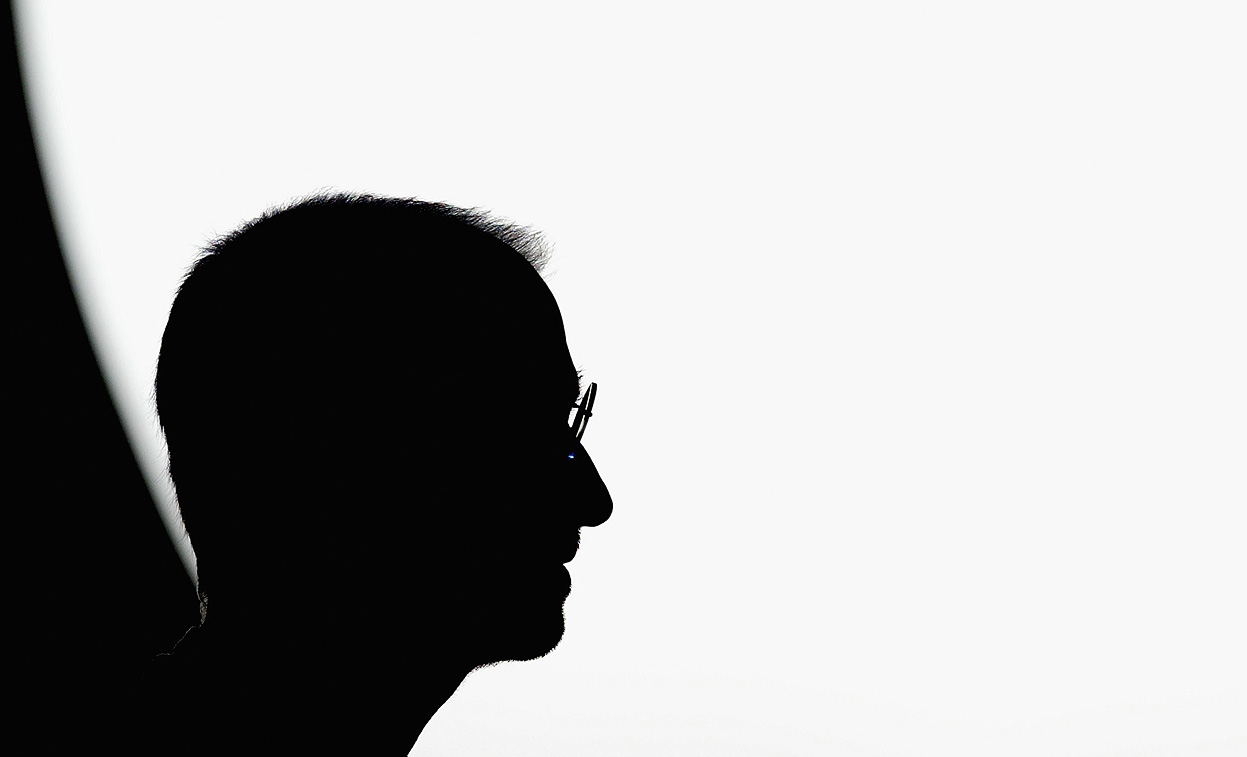Practically everyone who owns an iPhone either has an opinion of the late Steve Jobs or his products. People tend to believe he was either a pioneering visionary with only one speed––go––or that he was an antisocial despot who could care less if he rattled a few cages or stepped over the line on occasion. However, the opinions regarding his products––the iPhone, the iPad, and even the Apple Watch––are undisputed; they are works of genius that bring the ever-changing world of technology to the fingertips of ordinary citizens.
Directed by the seasoned Danny Boyle, Aaron Sorkin’s latest film, Steve Jobs, seeks to open the curtain on Jobs’ early achievements. These achievements, however, are blemished by Jobs’ potential paternity over Chrisann Brennan’s daughter, his mercurial relationship with Steve Wozniak, his testy association with John Sculley, and the trial-and-error nature of his technological successes. These all combine “to present unsympathetic characters,” according to Stephen Mamber, Professor of Cinema and Media Studies at the University of California at Los Angeles. He notes that while this is “surely not a commercial move,” it makes the film all the more interesting for this reason. “We know Steve Jobs accomplished a lot, and this film is more than ready to show darker undertones, which also makes for far better drama.”
For moviegoers who wish to learn more about the elusive and complex Steve Jobs, this may not be the right film. Joshua Michael Stern’s 2013 biopic, Jobs, is much better suited to enlighten curious viewers of a more complete version of the life of Steve Jobs. Unlike Sorkin’s film, the events within the 2013 Jobs film, as Mark Jenkins of NPR puts it, “proceed as historical pageants, re-creating rather than reinterpreting the events they depict.” Jenkins also warns that “this merely serviceable film tells the story in such detail that it doesn’t have room for Jobs’ late-career triumphs,” but Steve Jobs does not leave room for them either.
Where Sorkin’s film does differ is in its selection of Jobs’ successes and failures, which focus on three major product launches: The Macintosh computer in 1984, the NeXT computer in 1988, and the iMac in 1998. Mamber explains that, as a film, this cinematic decision was a near-brilliant one. “The film is structured around the three presentations, which were themselves theatrical events and clearly constructed as ‘shows,’ which mirrors then what the film itself is doing.” This film is an artistic standout compared to other Jobs biopics, like the Ashton Kutcher-helmed 2013 pic, which “more or less embodies the sort of bland, go-with-the-flow creative thinking Jobs himself would have scorned,” as Justin Chang of Variety puts it. Jenkins agrees, claiming that the 2013 film does not “seriously exert…itself to examine psychology or illustrate character…”
Sorkin’s depiction of Jobs is clearly focused on three distinct phases of his life. While some may argue that the movie’s ending (in 1998, well before the release of the iPhone) is unsatisfying, a comprehensive Jobs tale was not Sorkin’s goal. As Mamber explains, “in practically no case should there be an expectation of historical accuracy in fictional films (especially from Hollywood), and this film is so clearly selective and interpretive as to be pretty free from any feeling that this is a biographical representation of the ‘real’ Steve Jobs.” In Steve Jobs, Sorkin accomplishes this by compellingly intertwining tales of relatable stresses of everyday life with the balancing act of maintaining enough friends (or even mere acquaintances, if you are Steve Jobs) to get ahead in the business.
It may be questionable to assume that Jobs was a halfway decent human being. However, that he was stellar as an entrepreneur and a cutthroat visionary is undeniable, and Sorkin was able to make a film about only three periods of the man’s life for this reason. Moreover, Sorkin’s most recent film has merely been the continuation of the contemporary practice of making technology the star of the show. Mamber, who agrees, says that it is “interesting to see technology so highlighted as a movie subject, [which is] something that’s happened a lot recently.” Films like The Martian, Ex Machina, and even the latest installment of Star Wars have all used the application or appeal of technology to rouse audiences.
Additionally, Sorkin employs the help of a leading cast, with names like Michael Fassbender, Kate Winslet, Seth Rogen, and Jeff Daniels. In particular, Fassbender’s take on Jobs is one that is much more believable than previous depictions. Together with the its two Golden Globe awards for Best Supporting Actress in a Motion Picture (Winslet) and Best Screenplay in a Motion Picture (Sorkin), the film’s recognition as a work of art is only just in its initial phases.
At the end of the film, however, the question remains: Who was Steve Jobs? Prodigy or lunatic? After seeing the representation of Jobs’ perseverance and callousness manifest on the big screen, after millions continue to use their iProducts despite Apple underpaying workers abroad, and after knowing that Jobs repeatedly shunned his first child, perhaps the answer is both.

